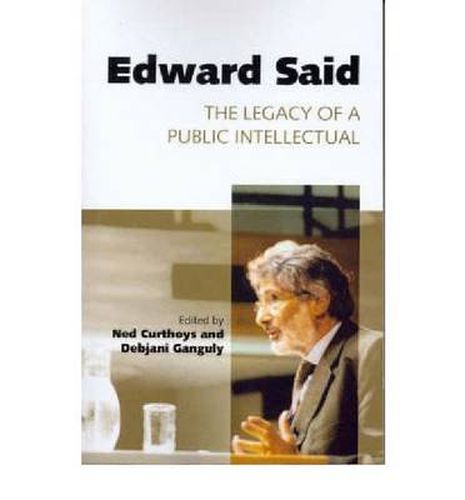Readings Newsletter
Become a Readings Member to make your shopping experience even easier.
Sign in or sign up for free!
You’re not far away from qualifying for FREE standard shipping within Australia
You’ve qualified for FREE standard shipping within Australia
The cart is loading…






This collection is an enterprise of discovery and critical inquiry into the legacy of one of late modernity’s greatest public intellectuals, Edward Said. Noted contributors, including Bill Ashcroft, John Docker, Lisa Lowe, Hsu-ming Teo and Patrick Wolfe, address an array of intellectual, political and cultural issues in their engagement with Said’s oeuvre. Exciting new scholarship highlights the ways in which humanities in the twenty-first century can engage with Said’s legacy, which includes his imbrications of culture and imperialism, his cosmopolitan critique of the idea of ‘clash of civilisations’, and his belief that the intellectual needs to maintain ‘intellectual performances’ on many fronts. The individual chapters achieve a sense of balance between the two poles of Said’s persona- the brilliant and intimidating literary and music critic who invested deeply in an inclusive and democratic vision of humanism and the outspoken public intellectual who kept alive the truth of Palestine and the dangers of a settler colonial ethos.
$9.00 standard shipping within Australia
FREE standard shipping within Australia for orders over $100.00
Express & International shipping calculated at checkout
This collection is an enterprise of discovery and critical inquiry into the legacy of one of late modernity’s greatest public intellectuals, Edward Said. Noted contributors, including Bill Ashcroft, John Docker, Lisa Lowe, Hsu-ming Teo and Patrick Wolfe, address an array of intellectual, political and cultural issues in their engagement with Said’s oeuvre. Exciting new scholarship highlights the ways in which humanities in the twenty-first century can engage with Said’s legacy, which includes his imbrications of culture and imperialism, his cosmopolitan critique of the idea of ‘clash of civilisations’, and his belief that the intellectual needs to maintain ‘intellectual performances’ on many fronts. The individual chapters achieve a sense of balance between the two poles of Said’s persona- the brilliant and intimidating literary and music critic who invested deeply in an inclusive and democratic vision of humanism and the outspoken public intellectual who kept alive the truth of Palestine and the dangers of a settler colonial ethos.